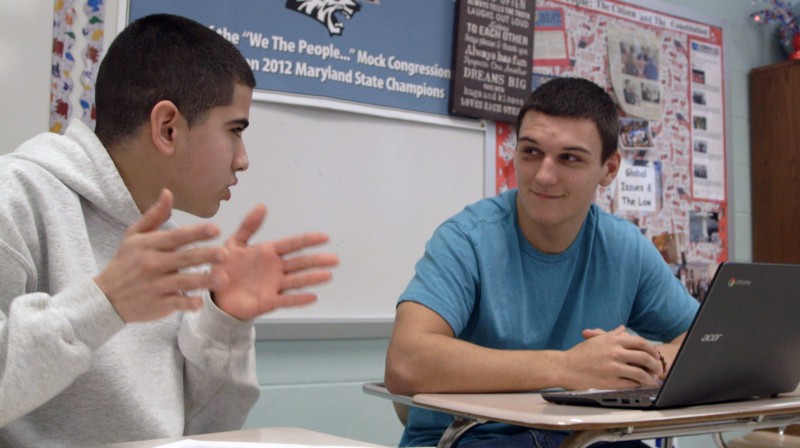As a tenacious student, I was completely focused on passing my classes. After that, I would get into a good college, to pass more classes and then somehow find a job. But at the beginning of my junior year, I found my passion. I became completely engulfed in what people call the “Student Voice Movement.” I had no idea what to expect at first, but as I focused on student voice, it became apparent in every aspect of my life.

When educators attempt to describe student voice, they see it as it relates to the classroom. What do students need to learn to be civic actors later? Some administrators believe that inviting students to faculty meetings and trainings to observe is enough. But formatting a school project and observing faculty meetings is a form of student tokenism, or making a symbolic effort to include student voice in schools while they aren’t actually doing much.
But I challenge educators to be more creative. Go beyond student-led class projects and presentations by allowing students to participate in school-wide policies that impact their lives (ie. curriculum changes or student representation on school boards).
I see student voice as a process embedded in action — rallying others around a cause and creating a community of leaders who want to enact change. As students become more involved in education reform, political movements, and even the workforce, student voice moves beyond the classroom into the wider community. The idea of rallying students around a cause is important, and it’s even more important that this culture is cultivated within school districts.
Students are prepared to create change later in life when it’s already too late. We can’t prepare them to be leaders for later when they are in fact, leaders right now. Without students stepping up to the plate, we wouldn’t have Tinker vs. Des Moines Independent or the East L.A. Chicano Movement. By standing up to the injustices they experience, students can change these systems they’re already part of. How are they supposed to engage in the issues that afflict schools once they’ve graduated? They can’t, and that’s why student voice is so important to cultivate in young students.
Schools are perfectly situated to support students in the exploration of their voice. It’s an institution that provides every means to discover and cultivate their passions. Schools not only help our students grow, but they help our communities grow. What other place brings together parents, community members, and sports fans? Schools are at the center of our communities, and students can continue to be active and involved long after singing Christmas music in nursery homes (which is still a fun time). This makes schools the best place to facilitate experiences where students learn how to be productive and active citizens, and where current, not future, leaders are born.
Not convinced? The students from the Stoneman Douglas High School (referred to as the Parkland Students) are a shining example of this. Politics aside, these students used their passion and civic knowledge to launch a movement that shook the nation. The information they learned in classes about the Second Amendment and constitutional rights aided them as they became leaders in the March For Our Lives movement. In their case, waiting until after they graduated was not an option. Students become leaders when faced with adversity.
During my final years of high school, I’ve focused my energy on giving other students a voice. In my work, I’ve introduced a bill into the state legislature to put student representatives on school boards. With my help, my local district adopted the policy. The current representative provides a student perspective to the board and vice versa. Now imagine thousands of students across the nation pursuing the passions that impact their communities. Whether that’s introducing bills to their state legislatures, improving the quality of their town’s drinking water, or painting murals and displaying art in a public town center. There are numerous ways that students can make a tangible and lasting impact.
When I was younger, I never thought I would intern with nonprofit organizations or advocate at the state capitol. But the mentorship I received from academic advisors and the opportunities given to me made that possible. Teachers and administrators have an entire life worth of knowledge and connections to pass onto their students. Educators can use those connections and experiences to guide students because, without this guidance, students can’t reach their full potential. Instead of leaving our students to idly do their schoolwork, I would encourage educators to provide the opportunity for students to develop zealousness for a cause.
Students today are the backbone of tomorrow’s society and developing student voice empowers students to follow their passions to enact change. It’s important that everyone, including students, encourages the next generation of activists, scientists, and politicians to be active and engaged in their communities. Educators play an important role in inspiring students to be a driving force in society by providing them with the opportunity to follow their passions. We can’t underestimate the power of our young citizens.
About the Author:

Jaden Deal is a member of the 2023 class at Harvard College. Once on campus, Jaden plans to concentrate in Social Studies and write for the Harvard Political Review. He has strong interests in civic engagement, criminal justice reform, and LGBTQ issues. Follow Jaden on Twitter @jadenddeal.


 See All
See All